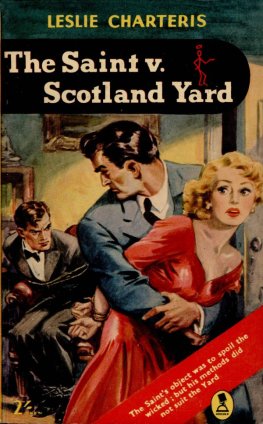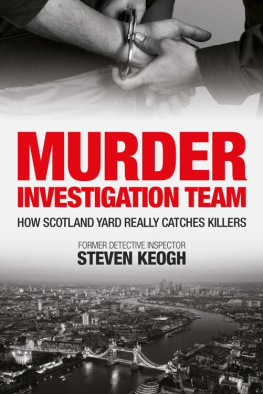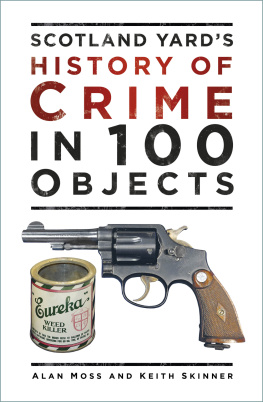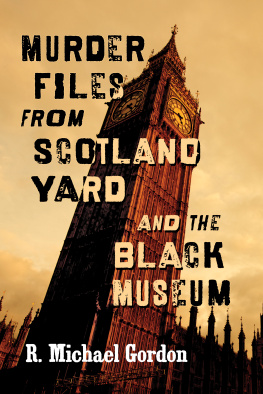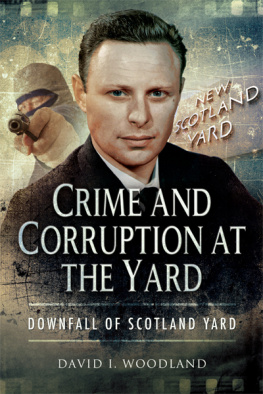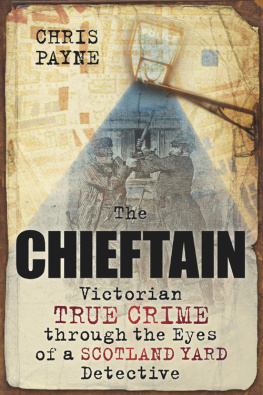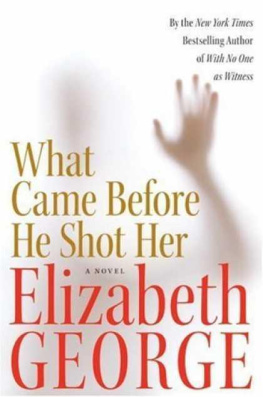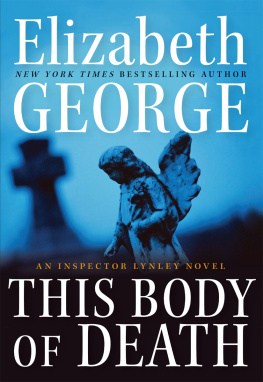SCOTLAND YARD.
Copyright in the United States of
America, 1915.
SCOTLAND YARD
THE METHODS AND ORGANISATION OF
THE METROPOLITAN POLICE.
BY
GEORGE DILNOT.
Logo
LONDON:
PERCIVAL MARSHALL & CO.,
66, Farringdon Street, E.C.
CONTENTS.
| CHAPTER I. |
| The Silent Machine |
| CHAPTER II. |
| Matters of Organisation |
| CHAPTER III. |
| The Real Detective |
| CHAPTER IV. |
| On the Trail |
| CHAPTER V. |
| Making a Detective |
| CHAPTER VI. |
| More about Investigation |
| CHAPTER VII. |
| The "Crooks'" Clearing-House |
| CHAPTER VIII. |
| Finger-Prints |
| CHAPTER IX. |
| The School of Police |
| CHAPTER X. |
| In a Police Station |
| CHAPTER XI. |
| The Riddle Department |
| CHAPTER XII. |
| The Sailor Police |
| CHAPTER XIII. |
| The Black Museum |
| CHAPTER XIV. |
| Public Carriages |
| CHAPTER XV. |
| Lost, Stolen, or Strayed |
PREFACE.
TO ROBERT.
My Dear Robert ,
It is more than probable that since this book was written you have changed your uniform and your beat. You are in the North Sea, in Flanders, in Gallipoli. Nowhere can admiral or general wish a better man.
I have known you long. I have for many years been thrown among you in all circumstances, and at all times. I have known you trudging your beat, have known you more especially as a detective, have known you in high administrative and executive positions. I have seen you arrest armed murderers, have seen you tactfully reproving a drunkard, have seen you solving tangled problems of crime, have seen you charging a mob, have seen you playing with a lost baby. I do not think there is any phase of your work which I have not seen. And I want the public to know you.
You, whether you be Commissioner or constable, occupy a position of delicate and peculiar responsibility. You are poised between the trust and suspicion of those you serve, and you are never quite sure whether you will be blessed or blamed. I, who realise something of your temptations and your qualities, know how seldom you fail in an emergency, how rarely you abuse your powers.
You will forgive me when I say you are not perfect. You have your little failings, and at times the defect of one man recoils on 20,000. There are matters I should like to see changed. But, on the whole, you are admittedly still the best policeman in the world.
The war has claimed you and others of your profession. Astute commanding officers have recognised you as "men who are handled and made," and many a constable of a year ago now wears an officer's stars. There are those of you who have gained other distinctions.
There is no branch of the service here dealt with that has not sent of its best to the fighting line. None will recognise more willingly than you in the trenches that the luck has been yours. We know (you and I) that others have been, by no will of their own, left behind. It is to these, in no small degree, that the safety and equanimity of London have been due. And it is as well that here tribute should be paid to those who have endured without retort the sneers of the malicious and ill-informed as well as the multiplicity of extra duties the war has entailed upon them.
One advantage, at least, the war has conferred on you. It has exploded the ignorance of your profession to those thousands of citizens who have elected to share something of your responsibilities. They at least know something of your work; they at least know that the special constable can never replace, though he may assist, the experienced police-officer. You always understood the Londoner; now the Londoner is coming to understand you.
I have attempted no more than a sketch of the great machine of which you form part. But if it enlightens the public in some degree as to the way they are served by you it will have achieved its purpose.
Yours sincerely,
GEORGE DILNOT.
London,
October, 1915.
SCOTLAND YARD.
By George Dilnot.
"By all means let us abuse the police, but let us see what the poor wretches have to do." Kipling.
CHAPTER I.
The Silent Machine.
We who live in London are rather apt to take our police for granted. Occasionally, in a mood of complacency, we boast of the finest police force in the world; at other times, we hint darkly at corruption and brutality among a gang of men too clever, too unscrupulous to be found out. We associate Scotland Yard with detectivesmiraculous creations of imaginative writersforgetting that the Criminal Investigation Department is but one branch in a wondrously complex organisation. Of that organisation itself, we know little. And in spite ofor perhaps because ofthe mass of writing that has made its name familiar all over the world, there exists but the haziest notion as to how it performs its functions.
Perhaps one of the reasons for this ignorance is that Scotland Yard never defends itself, never explains, never extenuates. Praise or blame it accepts in equal silence. It goes on its way, ignoring everything that does not concern it, acting swiftly, impartially, caring nothing save for duty to be done.
There is romance in Scotland Yarda romance that has never been written, that may never be written. It concerns the building up, in the face of incredible obstacles, of a vast, ingenious machine which has become one of the greatest instruments of civilisation the world has ever seen.
Imagine an army of 20,000 men encamped over seven hundred square miles, with its outposts in every quarter of the globean army engaged in never-ceasing warfare with the guerillas of crime and disorder. Imagine something of the work it does.
In a city of seven million souls, crammed with incalculable wealth, there are less than a thousand habitual thievesthe exact number is 706and 161 receivers of stolen goods. In spite of all its temptations, there are but seventeen thousand serious crimes in a year, while the number of more trivial offences is only one hundred and seventy thousand. Few of the perpetrators escape justice. Compare this record with that of any city in the world. Ask Paris, ask New York, ask Petrograd, and you will begin to realise how well protected London is.
In a large soft-carpeted room, its big double windows open to catch the breezes that blow from the river, sits the man upon whom the ultimate responsibility for all this devolves, a slim-built, erect man of sixty odd, with moustache once auburn but now grey, grey hair and shrewd hazel eyesSir Edward Henry.
Imperturbable, quiet-voiced, quiet-mannered, he sits planning the peace of London. He is playing a perpetual game of chess on the great board of the metropolis with twenty thousand men as his pieces against a cosmopolitan fraternity of evil-doers who never rest. He is the one man in the service who must never make a mistake.
The Commissioner of the Metropolitan Police sleeps on no bed of roses. He must be as supple as willow, as rigid as steel, must possess the tact of a diplomatist, with the impartiality of a judge.



